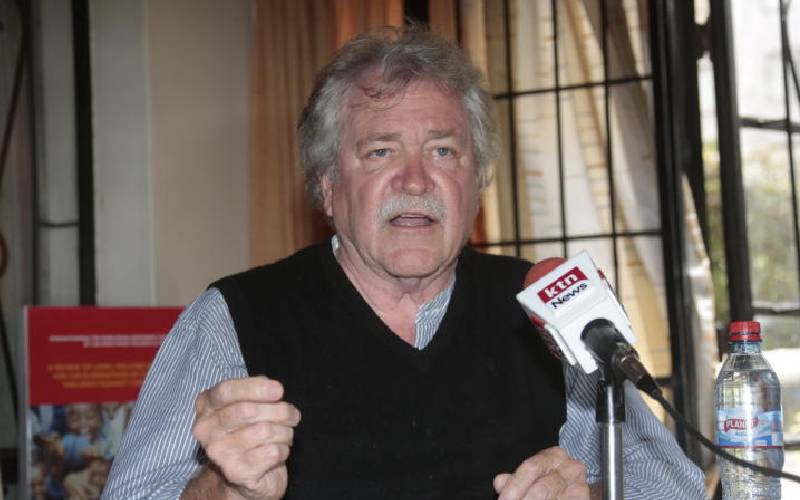
International Philanthropist Len Morris during an interview at African Network for the Prevention and Protection against Child Abuse and Neglect (ANPPCAN) Regional office in Nairobi on November 22nd, 2022. [Boniface Okendo, Standard]
More than 27 years after he set his feet in Kenya, Len Morris did not know his pursuit to document stories about child and forced labour and child trafficking would turn to change lives for thousands of children pulled out from school to work in farms, quarries, gold mines and sand harvesting sites.







